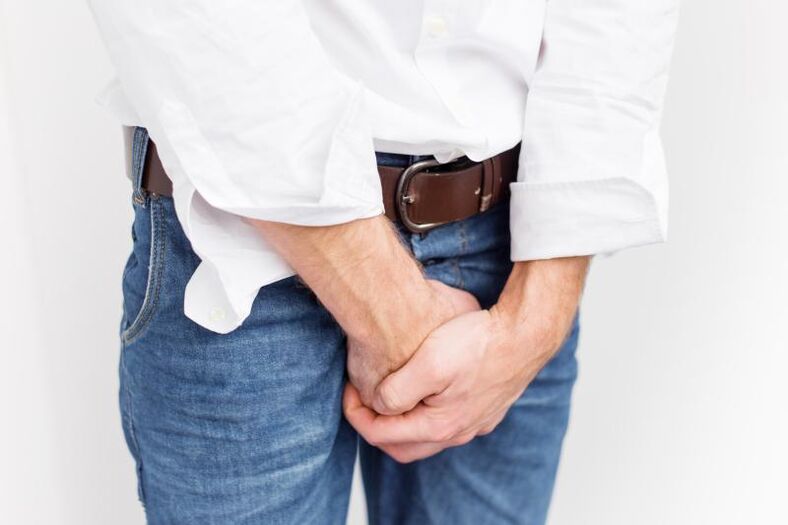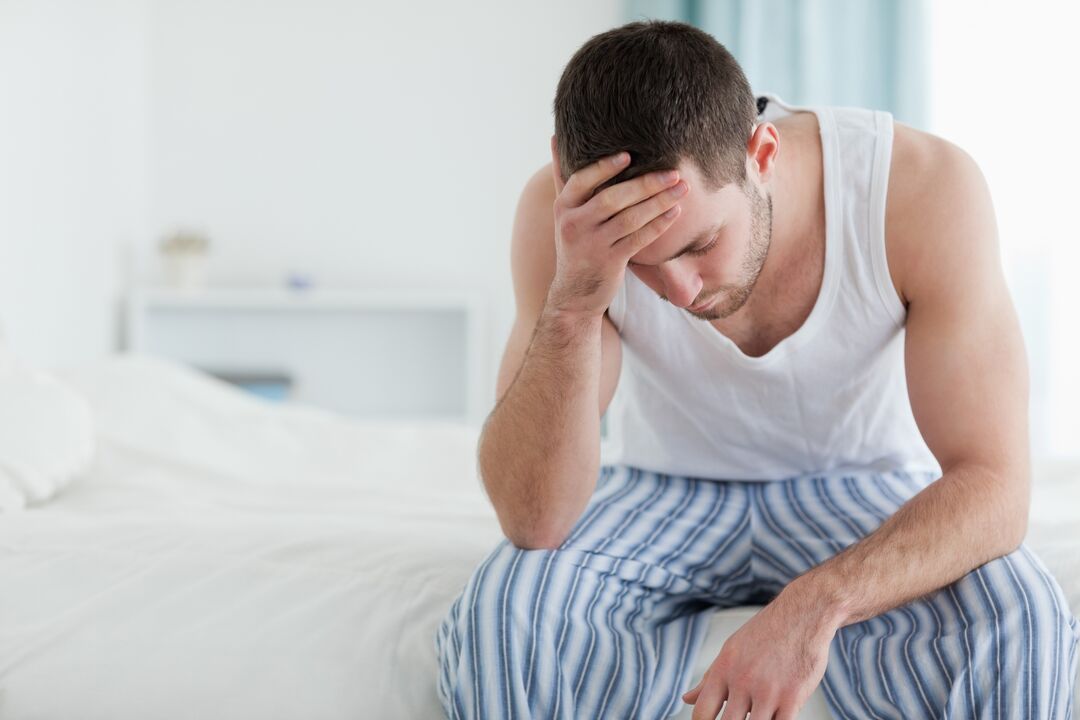
Prostatitis is a disease that can only appear in the male genitourinary system. Representatives of the stronger half rarely rush to see a doctor and often skip a favorable period for treatment, so that the resolution of health problems comes at an appropriate time, which is usually too late. It is very important to listen to your body in a timely manner to identify any problems that are threatening to be locked in a hospital bed for a long time.
Caring for the prostate becomes particularly important in adulthood. But the disease is actively getting younger. If earlier it was diagnosed primarily in men over 40 years of age, now symptoms of prostatitis have been identified between the ages of 20 and 25. Almost every second man suffers.
The role of the prostate in a man's body
This organ is often referred to as the "second heart" because of the many important functions that the gland performs. In it a secret is formed that dilutes the composition of sperm, the gland is part of the sphincter that regulates the urinary process, produces and converts male hormones, and also contributes to the feeling of orgasm.
Signs of prostatitis in men and their symptoms
Prostatitis is inflammation that is associated with swelling of the tissues of the prostate (prostate). It inevitably manifests itself, even if the pathology itself appears in the adjacent organs, the vas deferens, urethra and bladder. The main routes of the circulatory and lymphatic systems run through the groin, which makes congestion worse. The many nerve fibers that run in this area of the body contribute to painful seizures.
Symptoms of prostatitis are caused by the type of disease, which is characterized by the cause of its onset. The following types are identified:
- bacterial;
- abacterial or non-infectious;
- spicy;
- chronic.
Although for each element you can distinguish its own signs of prostatitis, the symptoms have similar manifestations:
- There is discomfort and pain in the suprapubic region, groin and scrotum.
- Frequent urge to go to the bathroom with cuts and pain, there is a feeling of incomplete evacuation.
- The libido goes down.
- Body temperature rises, chills covered.
- Depressed mood, apathy, depressed state of the psyche.
At least two of the symptoms listed are a major reason to consult a urologist or andrologist. An insidious disease can go without manifestations for a long time, and the first signs of prostatitis in men are noted years after the onset of the provoking factor.
It pays to be careful with pain in the pelvis, sacrum, and lower back. The pain syndrome increases with abstinence or, conversely, with frequent sexual contact. The secretion of the gland has natural bactericidal barriers, so only fluid stagnation can lead to the onset of the inflammatory process, if the bactericidal effect disappears.
Signs of prostatitis for different types of diseases
Based on the clinical picture of the disease, many forms and types of prostatitis are identified. Each of them differs in its signs and the nature of the course of the disease. How prostatitis manifests itself is due to the reasons for its occurrence.
Urologists identify two main causes of prostatitis:
- an infection that can penetrate the pelvic organs in a number of ways;
- Fluid build-up in the gland.
Which factors form these phenomena:
- Infection of the genitourinary system with various microorganisms and fungi;
- reduced immunity, which hinders protection from infection;
- Hypothermia, for example from sitting on a cold surface for a long time;
- a sedentary lifestyle provokes stagnation in the body;
- Dependence on alcohol and tobacco smoking has a negative effect on blood circulation, the vessels in the small pelvis are narrowed;
- the correct production of hormones is disrupted, which contributes to the appearance of problems in the genital area or impotence;
Let's analyze the individual forms and signs of prostatitis:
- Acute prostatitis- inflammation of the prostate tissue. It is accompanied by edema and disorders of natural processes. The swollen gland enlarges and compresses the duct of the excretory system. There are problems with the administration of natural needs, there are cramps, burning sensation and pain when urinating, feelingan incompletely emptied urethral bladder. Very advanced cases are accompanied by swelling of the scrotum, which causes painful discomfort when palpating. The production of the secretion that makes up the composition of the sperm is impaired, and this affects their qualitative maturation. The intimate area of life also suffers. Physiological discomfort has a negative impact on psychological comfort. With foci of purulent prostatitis in men, the symptoms will be as follows: viscous yellow discharge from the penis, high fever, acute urinary retention. Most often, the cause of the development of the disease in such a severe form is an infection introduced into the body. Pathogenic microorganisms: Viruses (papilloma, influenza), bacteria (Chlamydia, Trichomonas) and fungi, for example from the Candida family. The first signs of prostatitis in men in its acute form are similar to the first signs of an infectious disease: chills, weakness, muscle aches, fever up to 39 ° C. When a sharp pain occurs in the pelvic area, a man comes to the conclusion that it is not onlyis a cold and it will not be possible to "lie down". Then there are problems with going to the toilet. The treatment of an acute form of infection can only be carried out properly by a suitably qualified doctor. We need a clear diagnosis of the disease and immediate relief from the symptoms of prostatitis. In most cases, antibiotics are prescribed, the duration of which depends on the effectiveness of their action. Medical treatment is accompanied by physiotherapeutic procedures that promote accelerated tissue regeneration and prostate massages.
- Chronic prostatitis- the most common pathology of the genitourinary system in men. According to medical statistics, about 80% of all prostatitis cases are precisely the chronic form of the disease. The most common development factor is the effect on the body of pathogenic microorganisms, such as Trichomonas. Lack of regular physical activity, bad habits, trauma often provoke a chronic course of prostatitis. Acute prostatitis that is not fully cured often becomes chronic.
The most common signs of chronic prostatitis are:
- Discomfort and pain in the suprapubic area, pain in the groin area;
- waking up frequently at night to go to the bathroom;
- Difficulty urinating
- painful sensations during ejaculation;
Chronic signs of prostatitis in men and their symptoms cause discomfort to many men, but most of them put up with them and do not go to specialists, recklessly thinking that the disease could go away on its own. You can wait for the opposite effect. With this insidious disease, a man may make advances in the form of more dangerous diseases, or chronic prostatitis may become its acute form.
The saddest result of an acquiescence is infertility or impotence. Treatment of the chronic form of prostatitis is carried out with the direct participation of a doctor. He prescribes antibiotics and anti-inflammatory drugs. Medicines are used to relax the muscles of the urethra, making it easier for the patient to use the toilet.

Abacterial / Non-Infectious Prostatitis - Factors such as:
- suffered injuries;
- sedentary lifestyle;
- constant stress;
- low immunity;
- internal infections of the intestine or pelvis.
Signs of prostatitis are discomfort or pain in the pelvic area, difficulty using the toilet, disorders in the genital area, the patient is constantly tired, weak, mentally depressed. Self-medication is unacceptable as it requires an integrated approach from an attentive specialist. It is very easy to harm your body by prescribing medication yourself.
The wrong choice of antibiotic has a detrimental effect on the intestinal flora. Immunity decreases, which leads to an exacerbation of the processes in the prostate.
There are drugs available that can only relieve symptoms. If medication does not help for objective reasons, the specialist must replace it and introduce hormonal medication into the therapy.
Precautions
Prophylaxis for the prevention of prostatitis will be:
- Personal hygiene;
- an orderly rhythm of sexual activity;
- To do sports;
- regular warm-up at work in the office;
- a complete diet;
- Rejection of bad habits;
- timely treatment of infections of the genitourinary tract;
- constant increase in immunity.
The signs of prostatitis in men and their symptoms are very similar to a number of other dangerous diseases, such as cancer, abscesses, cystitis. The negative consequences can render a man sterile. Timely referral to an experienced specialist will help avoid health problems. It is very important to check your body regularly: once a year is enough, especially after forty years.

















